Category: Adult Faith Formation
How to celebrate the New Year in Faith
The previous post (see below) speaks of the new liturgical year. It’s a new year of Grace. Here are some suggestions as to “dig into our new year.”
~Build and/or grow the icon corner in your home
~Make it church frequently as possible
~Pray with Scripture, start with the Gospel of Matthew, reading only a paragraph at a time
~Give yourself an hour of quiet time —without cell phone or TV/radio/computer
~Engage in Byzantine prayer practices
- pray before and after meals
- say the Jesus prayer several times a day: “Lord Jesus Christ, Son of God, have mercy on me, a sinner”
- say thank you to God upon waking and before closing your eyes at bedtime
- get a Byzantine Hours prayer book and use it
~Do spiritual reading
~Do something charitable for someone in need.
In good relations with God
“A good interior relationship with God is an indispensable ingredient for a happy life. For only when this basic relationship is in order can all other relationships prosper. That is why it is important to learn and practice all one’s life long, from childhood on, to think with God, to feel with God, to will with God, so that love will follow and will become the keynote of my life. When that occurs, love of neighbor will follow as a matter of course. For if the keynote of my life is love, then I, in my turn, will react to those whom God places on my path only with a Yes of acceptance, with trust, with approval, and with love.”
— J. Ratzinger
Eleventh Sunday after Pentecost
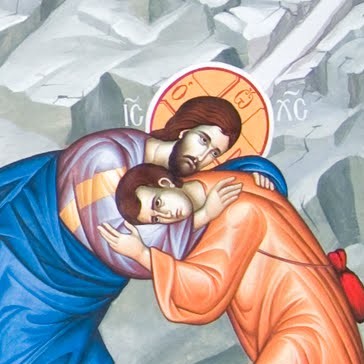 Read: 1 Corinthians 9:2-12; Matthew 18:23-35
Read: 1 Corinthians 9:2-12; Matthew 18:23-35
This Sunday’s gospel is about forgiveness. How God forgives is compared to how we forgive one another. Jesus’ teaching is in answer to Peter’s question: “if my brother sins against me, how often must I forgive him.” This implies that there is a limit to forgiveness. Jesus does not reply “always,” but “seven times seventy-seven times” In Aramaic, the answers would always be concrete, and this was in reply to Peter’s suggestion of “seven.” You could keep track of seven, but not 7 x 77. It was a virtual “always.” The same is true of the parable. The king forgives his servant 10,000 talents, which was roughly 20 years of daily wages. This was translated “a huge amount,” but again the sum is concrete, it may as well have been “infinite.” Then the forgiven man refuses to forgive his brother one denarius, a day’s wages, again easily countable.
Two questions: the first is the meaning of “forgiveness.” Here it means that someone else has wronged you, and a debt is incurred. To forgive means to write off the debt, saying virtually, “You owe me nothing.” Justice becomes a simple question of mercy.
In English we have the saying, “To err is human, to forgive is divine.” Any debt we would owe God is infinite, since God is without limits and has given us everything that we are or possess. If God, as infinite, forgives us our debts, then we, as limited human beings, should forgive one another our very limited debts, all of which are small as compared to the infinity of God, if we are to become God-like, that is, to be saved. Why then, is simple forgiveness so difficult for us?
Meditation by Archpriest David Petras
#ByzantineCatholicNewHaven
Seventh Sunday after Pentecost
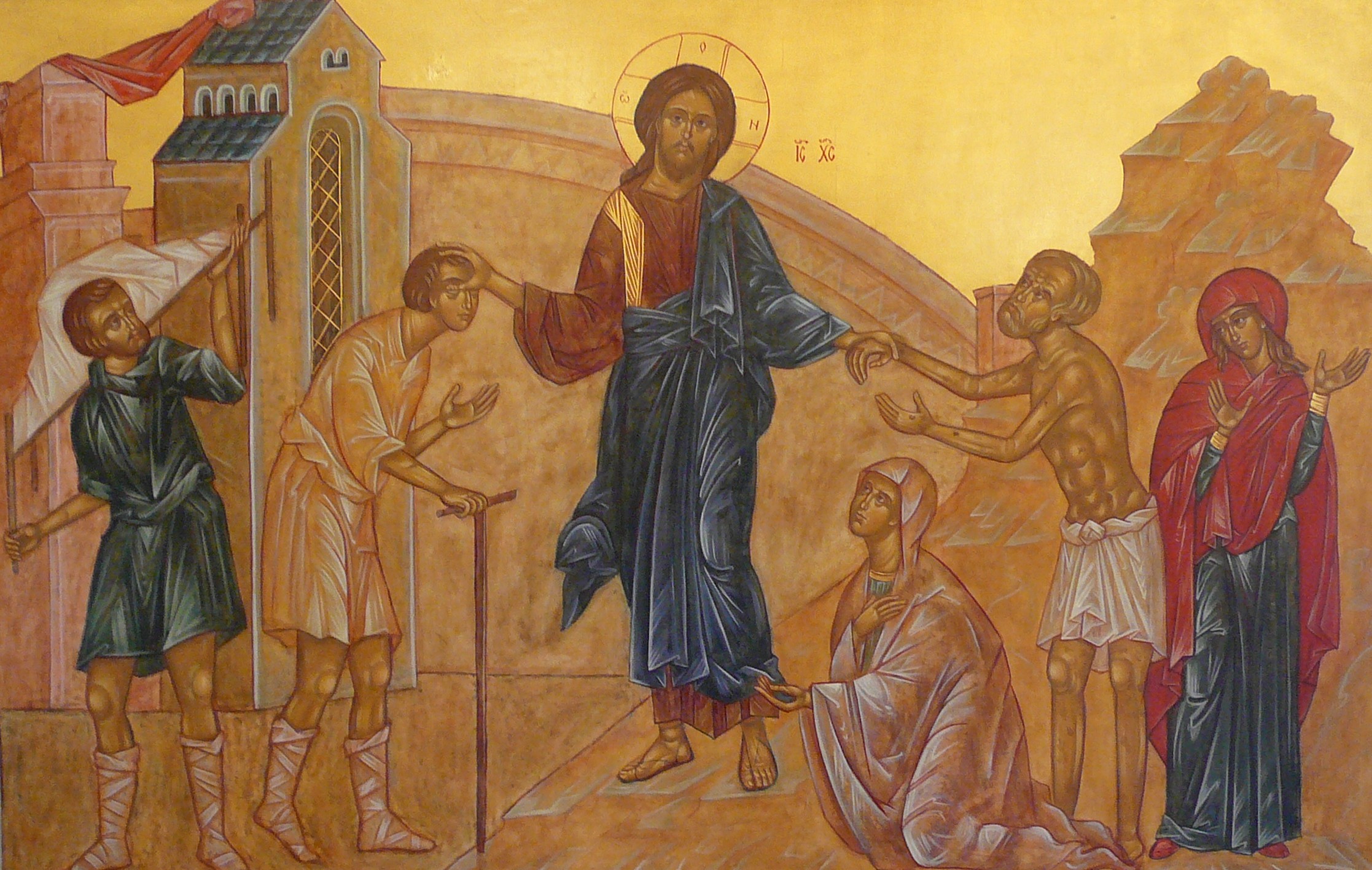 Read: Romans 15:1-7; Matthew 9:27-35
Read: Romans 15:1-7; Matthew 9:27-35
The Gospel for this Sunday can be summarized: Jesus went about doing good, healing the sick and revealing God’s love for all. St. Paul tells us the Jesus did this out of his goodness, not to please himself, not to glorify himself. From love for us, he took insults upon us upon himself. St. Paul concludes, “Welcome one another, then, as Christ welcomed you, for the glory of God” (Romans 15:7). In this way, we can heal one another’s spirit. Today’s epistle and gospel, then, tell us what love for one another really is. There is a condition, though, we must be open to God’s love. What does Jesus ask the blind men? “Do you believe I can do this?” If they believed they could be healed, then they also believed they needed healing, unlike the hypocritical Pharisees, to whom Jesus says, “If you were blind, you would have no sin; but now you are saying, ‘We see,’ so your sin remains” (John 9:41). They, in bitterness and unfaithfulness, hurl the insult at Jesus, “He drives out demons by the prince of demons” (Matthew 9:34).
We are blind to the image of God in the other when we “demonize” them, and in reality, makes ourselves into demons. We should, instead, heal one another and not condemn.
Meditation by Archpriest David Petras
#ByzantineCatholicNewHaven
Life in Christ means full trust in God
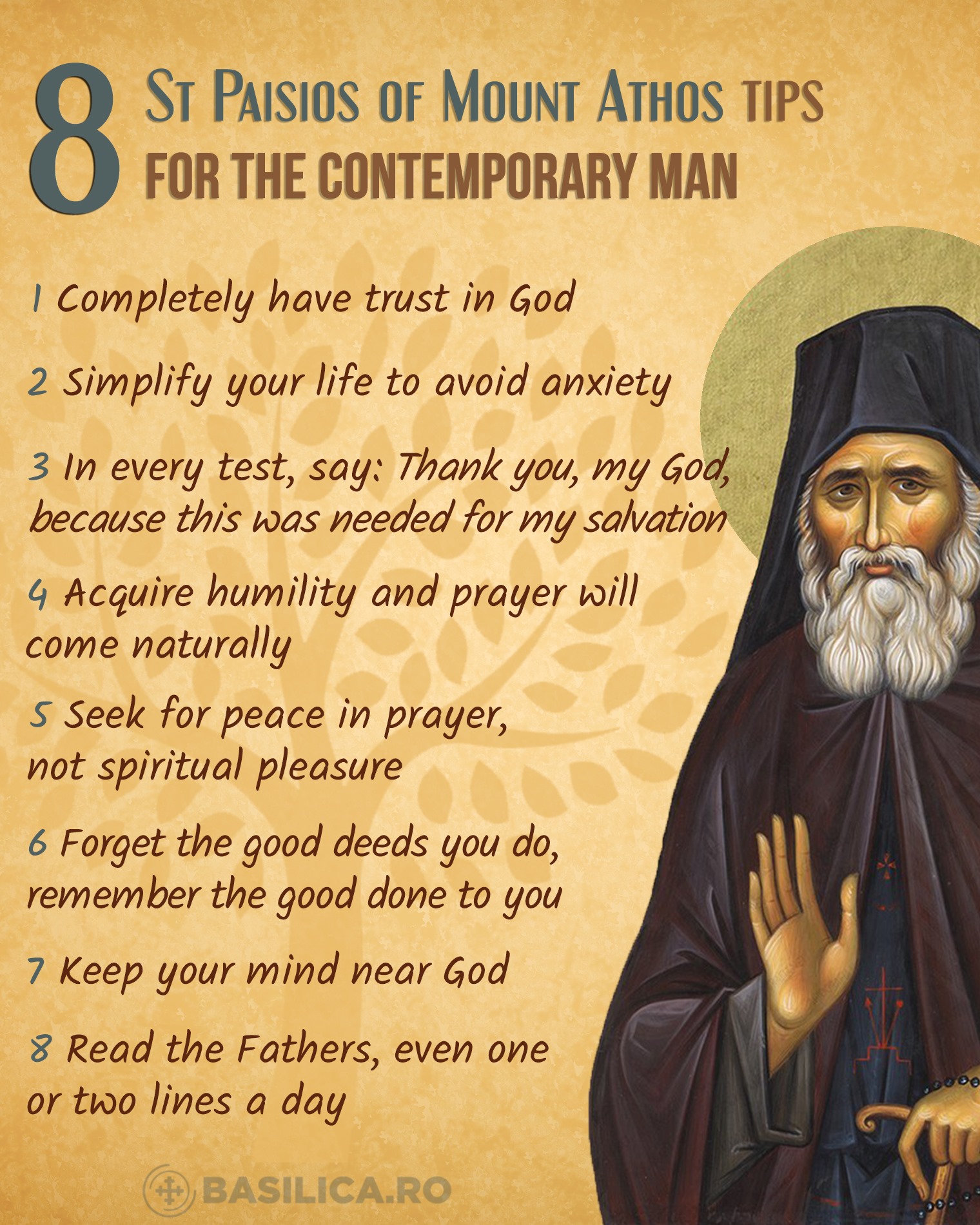
Life in Christ implies full trust in God, but also carefully organising everyday life. Here are some recommendations from one of the Athonite Elders, St. Paisios of Mount Athos.
How to Practice the Works of Mercy as a Family
 “As Mothers, We Live the Works of Mercy Each Day in Our Homes”
“As Mothers, We Live the Works of Mercy Each Day in Our Homes”
Blessed is She is an online community of women living the Gospel and the faith in their particular context.
Daily we are called to be protagonists in the works of mercy. Here is a resource.
Venerating Icons
Give some consideration to the veneration of Icons.![]()
Saints Peter and Paul –a holy day
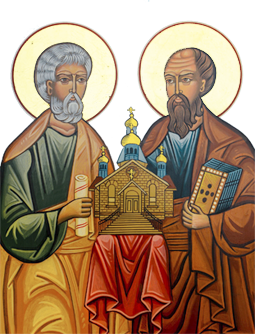 The feast day for the Apostles of Rome and early founders of the Church –Saints Peter and Paul– is on Saturday, June 29.
The feast day for the Apostles of Rome and early founders of the Church –Saints Peter and Paul– is on Saturday, June 29.
The Divine Liturgy will be served at 9:00 a.m. in English and Ukrainian.
The Church’s spiritual tradition has us observing the Fast of the Holy Apostles (Petrivka) as a way to deepen our relationship with the Lord and His preaching of Salvation through the ministry of Ss. Peter and Paul. The Fast has been observed from Monday after All Saints Sunday until the feast day on June 29 (or July 12 – Julian Calendar).
As a Church we honor the memory of the chief apostles by attending the Divine Liturgy. The Bishops have designated this day as a holy day of love (obligation).
In our catechism, Christ Our Pascha, we read: “The apostles, Christ’s disciples, received the Word of God and proclaimed the good news about him to the whole world. They witnessed to Christ by the word of their preaching and by the example of their lives. The mission of the apostles was taken up by their successors, the Holy Fathers of the Church, who preserved and safeguarded the unbroken continuity of Apostolic Tradition by means of the episcopal succession down to our times.”
Second Sunday after Pentecost
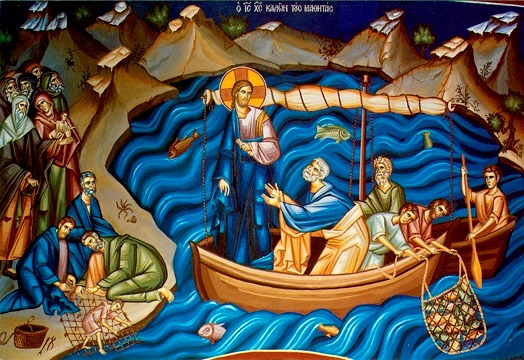 Read: Romans 2:10-16; Matthew 4:18-23
Read: Romans 2:10-16; Matthew 4:18-23
My favorite poet is a Jesuit priest who lived in the 19th century, and wrote about our faith. His name is Gerard Manley Hopkins, and though he was unknown in his lifetime, he changed English poetry. He wrote of our life in Christ:
In a flash, at a trumpet crash,
I am all at once what Christ is, since he was what I am, and
This Jack, joke, poor potsherd, patch, matchwood, immortal diamond,
Is immortal diamond.
This is what happens in today’s Gospel. Jesus calls Peter and Andrew and John and James, ordinary fishermen, and they IMMEDIATELY follow him. They become “immortal diamond,” oh —after one weakness when they run away at Jesus’ arrest, but then finally “in a flash” by the coming of the Holy Spirit.
St. Paul witnesses: “Consider your own calling, brothers. Not many of you were wise by human standards, not many were powerful, not many were of noble birth. Rather, God chose the foolish of the world to shame the wise, and God chose the weak of the world to shame the strong,” (1 Corinthians 1:26-27).
Today, though, especially because of mass media, the greatest fear we have is of being “ordinary.” We are unsure of ourselves, and we do not want to ever admit that we are or ever have been “ordinary.” Our problem is lack of faith. We want to become “immortal diamond” on our own terms, not from God’s calling. This is the sin of Adam and Eve, we want to “do it our way.” We have no humility, we do not trust in God’s plan.
Today’s gospel tells us differently —we don’t get the fifteen minutes of false glory that the world gives, but immortal life in Christ. Today we are Simon and Andrew and James and John, hearing the voice of Jesus, “Come, follow me.” Today we hear the Lord calling us calling us to a life like his of caring for others and proclaiming the gospel, if not by words, by our actions and lives. We cannot ignore this call. And St. Paul promises in the epistle “There will be glory, honor, and peace for everyone who does good, Jew first and then Greek. There is no partiality with God” (Romans 2:15-16).